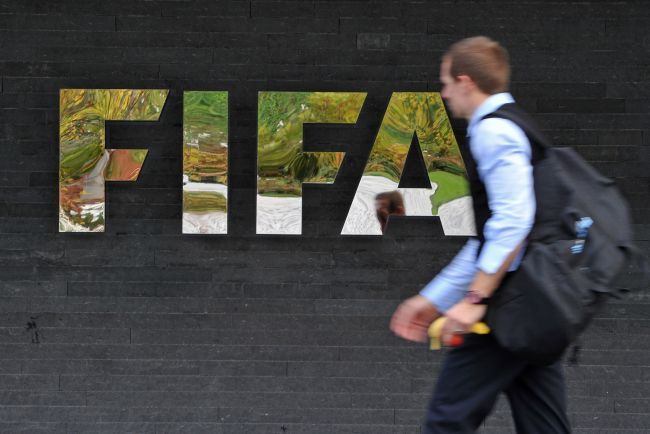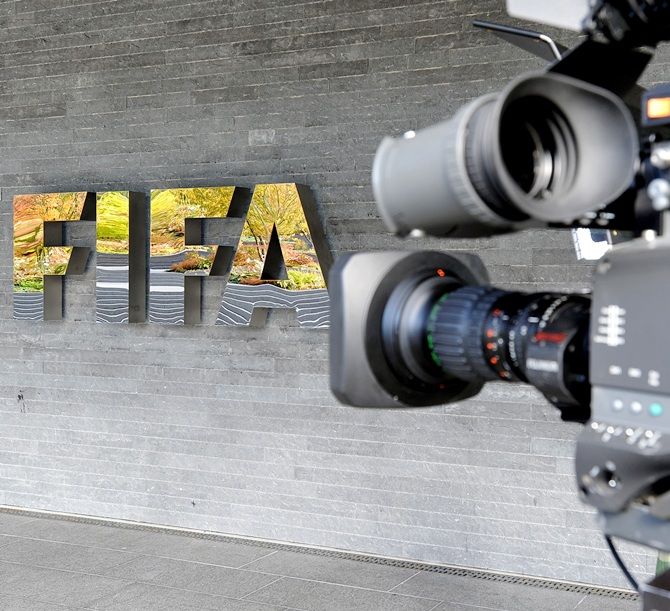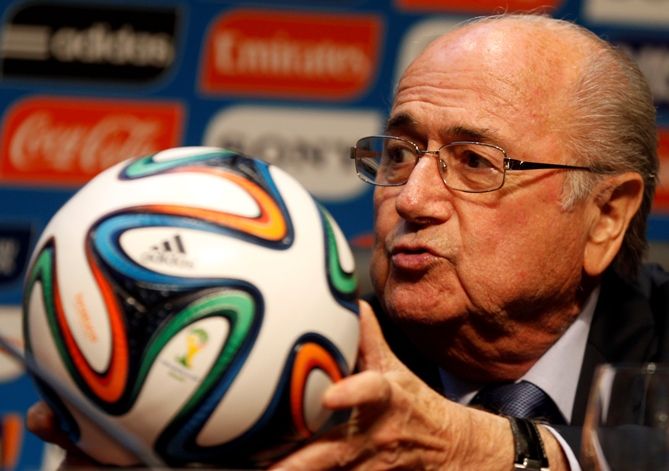
A member of the financial watchdog committee at soccer's ruling body FIFA has been charged with fraud, money-laundering and breach of trust by police in the Cayman Islands.
Canover Watson, a vice-president of the Caribbean Football Union and member of FIFA's Audit and Compliance Committee, was charged with five offences by the Cayman Islands Anti-Corruption Commission.
The cases relate to Watson's time as the head of Cayman's Health Service Authority and follow a police investigation into the introduction of a swipe card system. There is no suggestion of football-related crimes.
"The Anti-Corruption Commission can confirm the 43-year-old Caymanian businessman...who was originally arrested on 28 August 2014 by officers from the Royal Cayman Islands Police Anti-Corruption Unit...has been charged today," the Anti-Corruption Commission said in a statement on Thursday.
The commission released the statement to Reuters after being asked for an update on Watson's status.
The 43-year-old is due in Summary Court on Tuesday and the commission added "it is anticipated further charges will follow".
When he was arrested in August, Watson denied the allegations. He was not immediately reachable for comment on Thursday.
In September, FIFA temporarily suspended Watson from its eight-member Audit and Compliance Committee pending the outcome of the case.
The Cayman Islands is a power centre in the CONCACAF organisation that governs soccer in North and Central America and the Caribbean.
FIFA ethics chiefs agree next step for 2018/2022 report

FIFA ethics judge Hans-Joachim Eckert and investigator Michael Garcia have met for the first time since their public disagreement and agreed a report into the 2018/2022 World Cups bid process should be further reviewed.
They decided on Thursday that Garcia's report on his investigation into the turbulent bidding process would be sent to the chairman of FIFA's audit and compliance committee, Domenico Scala, who would in turn decide how much of the report should be sent to the FIFA executive committee.
They also confirmed that the ethics committee had opened a number of formal cases against individuals following Garcia's 18-month investigation which produced a 430-page report.
Eckert, head of the ethics committee's adjudicatory chamber, said in a 42-page statement last week there were no grounds to reopen the bidding process which led to Russia and Qatar getting the tournaments run by FIFA, world soccer's governing body.
But FIFA was plunged into chaos when Garcia said shortly afterwards that Eckert's statement on his report contained misrepresentations and he would appeal to FIFA's appeal committee. Thursday's statement did not make any reference to that appeal.
FIFA and Qatar World Cup organisers have been fending off allegations of corruption ever since the Gulf state was awarded the 2022 tournament.
Qatar, which has repeatedly denied the allegations, has also been criticised over its treatment of migrant workers in the construction industry.
Major importance

Eckert and Garcia said in Thursday's joint statement: "Both chairmen agreed that it is of major importance that the FIFA Executive Committee has the information necessary to evaluate which steps are required based on the work done by the FIFA Ethics Committee.
The statement confirmed that "the investigatory chamber has already opened a number of formal cases against individuals as a result of that inquiry."
It said those cases would not be affected by Thursday's development, nor by the recent referral of the reports to the Swiss Federal Public Prosecutor’s Office.
Switzerland's attorney general confirmed on Tuesday the receipt of a complaint submitted by FIFA along with a copy of the Garcia report.
"Both chairmen stressed the vital role of the FIFA Ethics Committee in ensuring the highest standards of ethics and governance at FIFA," said FIFA.
"Irrespective of the independence of the two chambers, the two chairmen regard good communication as key to fulfilling that role."
FIFA has come under increasing pressure, including from members of its own executive committee, to publish the Garcia report in full but says it cannot do so due to legal reasons and its own code of ethics.










